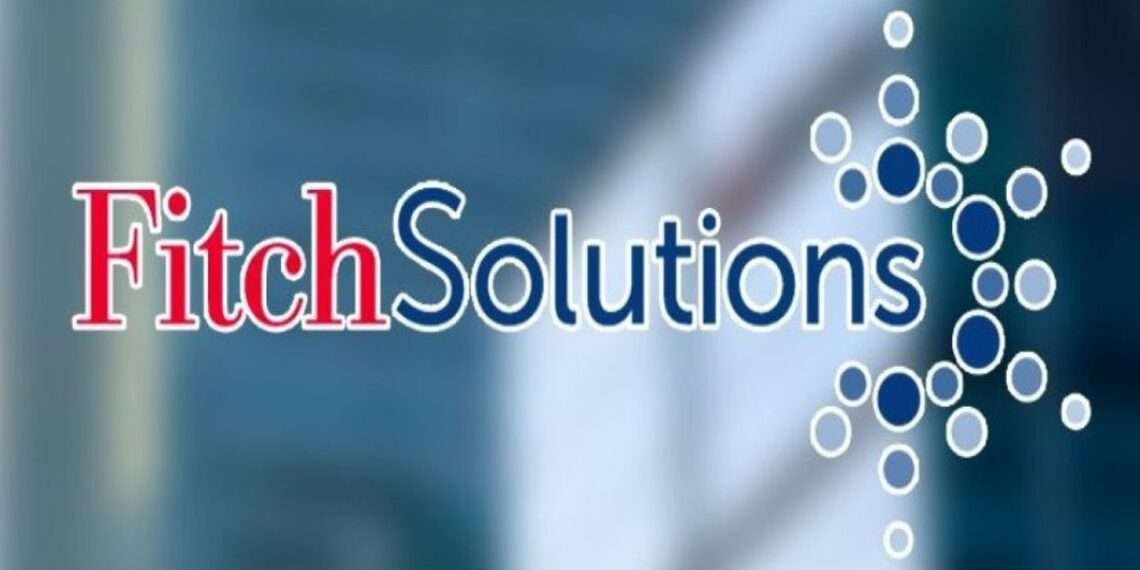Fitch Solutions, a leading provider of credit ratings, commentary and research for global capital markets has disclosed in its recently released Africa Monitor Report that Ghana’s revenue target for 2023 may be unrealistic.
The government of Ghana intends to mobilize a total revenue and grants of GH¢143,956 million, which amounts to roughly 18.0% of the Gross Domestic Product (GDP).
However, this figure represents a 43.2% increase from the 2022 target, and according to Fitch Solutions, the estimated revenue may be overly ambitious given the current economic conditions in the country.
“That said, we believe that the 2023 revenue target is unrealistic. While higher taxes will boost fiscal intakes, weakening economic activity on the back of still-elevated inflation and tighter monetary policy will cap revenue growth.”
Fitch Solutions
Fitch Solutions in its report further projected that Ghana’s economy will expand by a weak 2.9% growth in 2023 – which is far below the country’s 10-year pre-pandemic average of 6.8%, adding that: “Global oil prices are expected to ease in 2023, which will put downward pressure on receipts from the oil sector.”
“Our Oil & Gas team projects oil prices to fall by 6.9% to an average of $95.0/barrels.”
Fitch Solutions
More so, Fitch Solutions reckoned that the Ghanaian government has a history of overestimating intakes, indicating that government’s revenue target for 2022 was not achieved, and the trend may continue into 2023.
“Taking these dynamics into account, we believe that total revenues will rise to GH¢134.4 billion in 2023 (compared to the target of ¢144.0 billion) or 18.0% of GDP, from 15.0% of GDP in 2022. Fiscal intakes will improve on higher taxes in 2023.”
Fitch Solutions
The report has significant implications for investors and stakeholders in Ghana, who will be closely monitoring the country’s revenue collection efforts in the near term.
The challenging market conditions that are expected to persist will put significant pressure on the government to meet its revenue targets, but the country’s economic growth may not be sufficient to achieve these goals. The report also highlighted the need for the government to explore alternative revenue streams and implement more effective tax policies to support the country’s economic growth.
Government Unlikely To Issue Eurobonds At Attractive Yields In Short-Term Despite An IMF Programme
In Fitch’s view, it is unlikely that the government of Ghana will issue Eurobonds at attractive yields in the short term, even if it secures an International Monetary Fund support programme this month or in the next couple of months.
“First, Ghana faces external financing constraints. Indeed, the country has been cut off from the international capital market since late 2021 due to subdued investor confidence. While an expected IMF deal in Quarter 1, 2023 will gradually improve market sentiment, it is unlikely that the government will be able to issue Eurobonds at attractive yields in the short term.
“The IMF programme (expected to be worth $3 billion over a three-year period) would only finance a portion of the targeted deficit.”
Fitch Solutions
According to Fitch Solutions, the rising interest rates make domestic borrowing more expensive, adding, “given that Ghana already faces elevated interest payments, a substantial increase in domestic debt issuance would weaken fiscal dynamics further.”
Furthermore, it said the domestic debt exchange programe would make domestic banks more cautious in lending to the government in 2023.
Nonetheless, Fitch pointed out that the government’s expansionary spending plans will result in a rising public debt-to-Gross Domestic Product (GDP) ratio.
Indeed, it expects the public debt-to-GDP ratio to continue on an upward trajectory until 2028 (reaching 94.4%), after which it will start to moderate.
Read also: Ghana @66: We’ve Made Some Progress But We Could Have Done Far Better- Prof. Bokpin




















